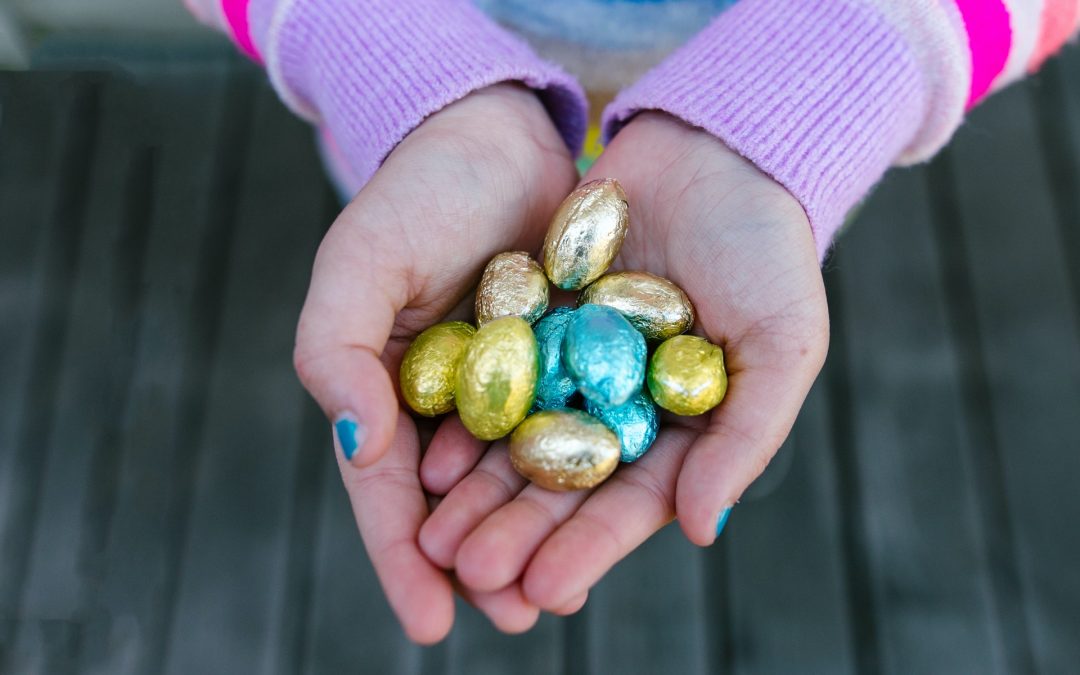As Easter nears, it’s easy to get excited about church services, egg hunts, and visits from the bunny. But let’s not forget that for some members of the family, out-of-the-ordinary, high-energy days can be more stressful than sweet.
For children with autism spectrum disorders, holidays can be overwhelming. Changes in routine and environment, different foods and decorations, visits from family and friends, and even Easter egg hunts can lead to sensory overload, a common trigger for meltdowns.
Fortunately, with a little foresight, planning, and patience, you can make Easter enjoyable for your little one. We’ve compiled advice from Autism Speaks, the Autism Parent Advisory Board, and the Autism Support Network to help make your holiday a happy one for all.
Talk It Through
Children on the autism spectrum are more comfortable when they know what’s coming. Talk through every detail of the big day, from waking up (try to do this at the same time as you always do) to welcoming guests to the big meal and beyond. Pictures of last year’s event and your guests will give your little one a better sense of what to expect. Older children might appreciate a written schedule they can follow throughout the day. Younger kids might like a picture schedule they can cross off as each activity is completed.
Do a Dry Run
If your meal will be out of the ordinary (read: fancy), do a dry run with your child, including fancy tablecloths, place settings, candles, and music so they know just what to expect. If you think it will help calm your kiddo, assign them a simple task (say, placing napkins) to give them a sense of ownership and importance.
Familiar Foods
Providing familiar foods will bring a sense of comfort, so be sure to include some of your child’s favorites on your menu, or, if you’re eating somewhere else, pack a selection of things you know your child will like.
Traditions
Hunting for Easter eggs and receiving a basket from the bunny might be old hat for you, but these are strange and unfamiliar activities to your child. Talk about these traditions and practice finding and opening a few eggs before the big day.
Safe Space
Whether you’re celebrating at home or away, designate a safe space ahead of time where your child can go if they are feeling overwhelmed. Be sure to include familiar toys, games, and lovies as well as music or movie players with headphones to help calm your kiddo.
Decorate Gradually
Waking up to find that spring has sprung in one’s living room can be disconcerting, so decorate gradually, removing anything that seems upsetting to your little one.
Have an Exit Strategy
No matter where you’re celebrating, prepare an easy exit strategy ahead of time. A simple one-liner like “We’ve so enjoyed this time together and now it’s time to go.” will do. Then quickly pack your things and head out.
Prep Your Family
Your friends and family love you and want to help make Easter a memorable day for all. Talk to them ahead of time about your child’s situation and things they can do to help make the day go smoothly.
Give Yourself a Break
We’d all love to create a fairy tale holiday for our families, but having a good time together is far more important than everything being perfect. Cut yourself a break this year! You may not be able to put out every decoration or cook every dish. And that’s okay.
Having a child with autism isn’t easy! Taking your little one into consideration as you make plans for the big day will go a long way toward making everyone happy.
Learning is Where We Play.
The original version of this article was first published in Learning Resources.

